The Brazilian brand Melissa is a global fashion icon which has been able to produce and distribute more than 60 million pairs of shoes in the last 30 years. 20 million of these shoes are exported to 80 different countries.
The identity of Melissa resides in the ability of transforming plastic spheres into real objects of desire. The plastic rises to the role of a tool to communicate technology and renewal.
Since the early 80’s Melissa chose to partner with leading designers to create models of highly innovative plastic shoes: Vivienne Westwood ( see shoe here below), Judy Blame, Alexandre Herchcovitch, Karim Rashid, the Campana Brothers, and recently Zaha Hadid: to name just a few of the prominent people who designed the most successful Melissa’ s creations.
The partners chosen by the company have always been the most talented professionals world-wide, who are able to search and identify alternative ways to express new ideas.
Melissa is the leading brand of the Grendene group, one of the largest shoe manufacturing companies, founded in 1971. They apply an exclusive thermal technology through a plastic injection process.
The company team believes that sustainability is a core value of its own way of creating business.
PVC is a versatile, durable and safe material. Not only it is completely recyclable and can be recycled many times without losing its own original features but it is also one of the most sustainable thermoplastic available on the market today.
For this reason, since 1993 Grendene has been producing its own PVC, assuming the responsibility to work only with the best and the safest raw materials and technologies.
From the view point of the footwear industry, PVC is an excellent choice: it can be easily modeled and offers exceptional performance in terms of design, comfort and durability.
Regarding the environment, the PVC production process generates a certain amount of solid, liquid and gas waste, which is treated to render it 100% neutral. This characteristic of the PVC makes it preferable to other synthetic materials often used in manufacturing footwear.
Model created by Melissa and Jason Wu
Grendene has been for a while now at the forefront seeking for continuous technologic improvements.
In partnership with suppliers and universities, time and financial resources are invested constantly to develop materials and processes that are cleaner and more environmental friendly.
Grendene’s environmental sustainability affects also the creative activity, through what the company defines “sustainable design”. In other words, each shoe is designed so that it can be produced with the least possible use of energy, to last as long as possible, to be reused, and it can be disassembled into various parts that are fully recyclable. This is made easier by using one single material for the production of each shoe.
With this strategy, Melissa offers more than just a product to consumers; Melissa creates dreams – plastic dreams – and offers a unique experience that goes beyond the simple aesthetic concept of the product.
Can you combine together Melissa and sustainability? Of course! Unlike what it usually happens with plastic in general, Melissa really cares about the environment and works with determination to ensure that the fashion accessories are completely sustainable, both in terms of production and also for the final consumer.
Melissa inspires plastic dreams. The brand creates real life experiences that go beyond the simple products design. First of all, it involves the senses, through the comfort and unmistakable “Melissa’ scent”, and then to provoke emotions, able to influence attitudes and emotional memory. After all it is more than thirty years that Melissa awakens emotions.
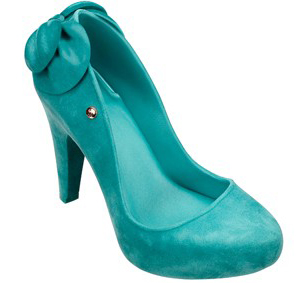
The brand always tries to do more with less. Desirable, beautiful, durable shoes are produced with a moderate power consumption and practically without waste. This is Melissa’s team challenge in each new collection.
For these reasons Melissa uses Melflex (TM) to manufacture its shoes. This particular material, a PVC compound, presents several advantages: it is versatile, durable and, most important, recyclable several times. Moreover, the product is not toxic, it is extremely comfortable to wear and is made with mineral salts derived from calcium-zinc, which are not hazardous to people’s health.
Each product is developed to the highest standards of design. In other words, the creation of a Melissa’s model involves the use of a limited amount of energy for the production, the possibility of a long usage, the possibility of subsequent re-use and the ease of disassembly and recycling.
Melissa knows and believes that a sustainable development does not represent an exception to the rule. It is instead a routine established over the years which aims to offer the consumer a safe and responsible product.
Besides awakening the collective consciousness, it is also important that each individual is inspired to contribute to improve the quality of life. “If everyone is able to change their habits of life by a conscious use of water and electricity, it is certainly a big step forward. Melissa already puts this in practice and, moreover, it is present in people’s lives with sustainable products, “said Paulo Pedo, general manager of Melissa.
For more info visit www.www.melissa.com.br/en


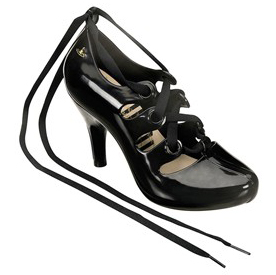
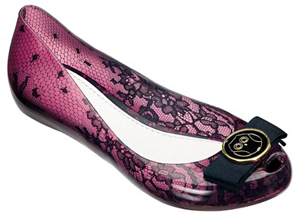
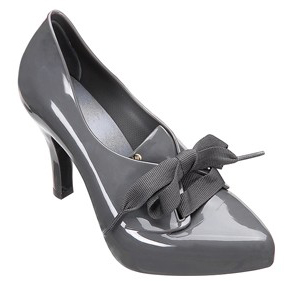
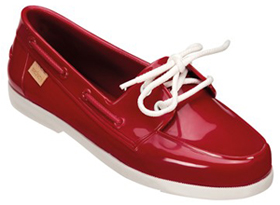
0 Comments